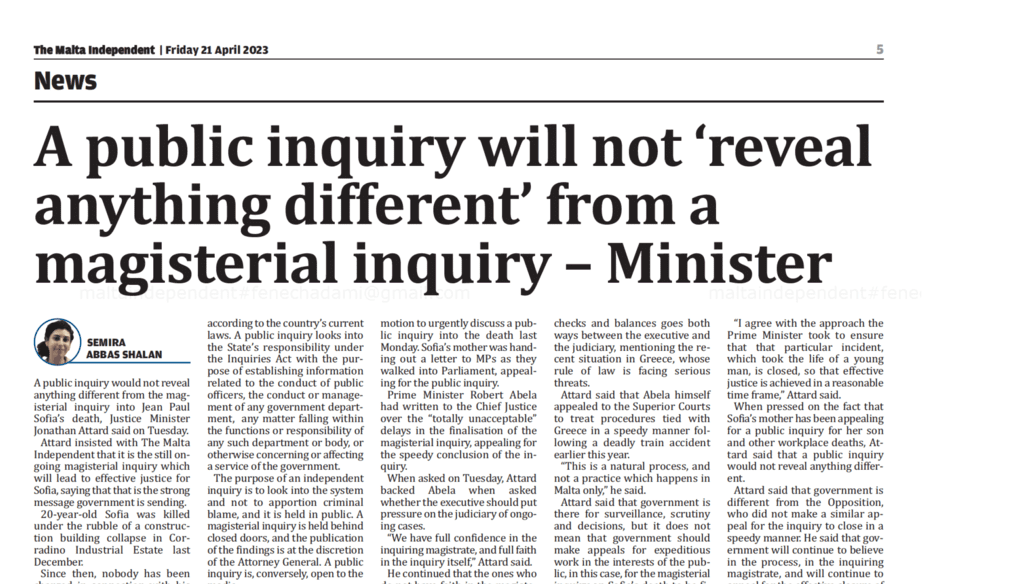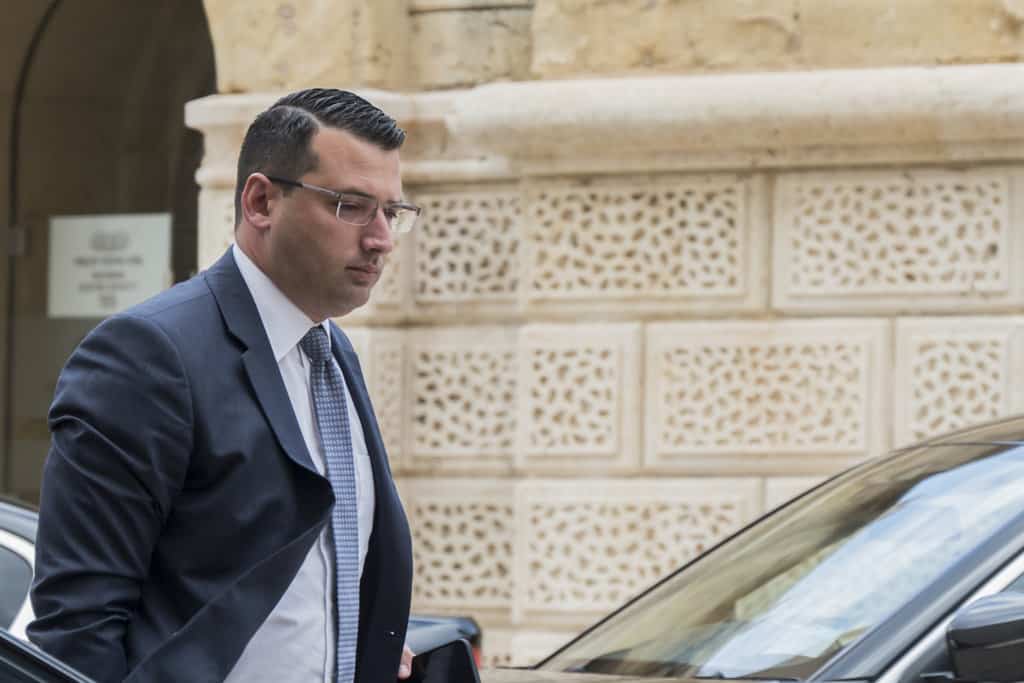
Look at that headline. The medical equivalent would be “Cigarettes add 5 years to your life expectancy, says health minister”. It’s not like we haven’t had an independent inquiry before. The Daphne Caruana Galizia inquiry went well beyond criminal responsibility. Indeed, it stayed out of criminal responsibility because criminal responsibility is the competence of the police, magistrates, and the prosecutor.
Instead, the public inquiry asked questions no criminal investigation can ask. Could this have been prevented? Are the rules adequate to prevent these circumstances? Did regulators do their job properly?
It must feel boring to you to have to read an explanation of what you already know. But please go back to that headline. You may know cigarettes are bad for you, but your justice minister is prepared to lie about the legal equivalent on the fair assumption that most people don’t care.
There, on top of a broken justice system, sits a lying minister.
Jonathan Attard, just a few days ago, told journalists that if they had any questions to submit on the attorney general’s decision not to prosecute the crooks at Pilatus Bank the questions should be put directly to him. Not to the attorney general.
There on top of a spineless, compromised, likely complicit attorney general sits a controlling minister.
Just this week Jonathan Attard published for consultation proposals to improve the criminal justice system. The proposals require study and the feedback of practitioners before they can be declared good or bad. There’ll be time for that.
But I will comment on the headline “solution” that was picked up by the press from Jonathan Attard’s remarks. The idea is to introduce a guillotine to impose a time limit for the compilation of evidence. In a wider context of reforms, a timeframe is welcome. But if that’s all they’re thinking of – imposing deadlines – without changing anything substantially in the capacity of the justice system to deliver within those times, things will be getting worse, not better.
It’s like having a student who struggles with their maths and the way you address the problem is by telling them they won’t be allowed to work on their homework for more than an hour. Tighter deadlines for the justice system may mean it will look like it’s taking less time but how is that alone a measure of improvement?
How are you helping the student get better at maths? How are you securing the capacity needed to secure convictions within the tighter timeframes?
Isn’t this the problem we have, that between the police, the prosecutors, the magisterial inquiry process, and the rest of the judicial course, our justice system is evidently incapable of securing any material conviction for serious crimes? Is the problem not the fact that when Pilatus Bank was charged, the prosecution service had no idea what to do next? And that’s just to mention one example.
You see, the justice system may be slow, but that’s not even the worst problem. The justice system is broken. It doesn’t work. It’s dysfunctional. Its ability to prosecute and convict petty criminals and its inability to deal with the crimes that have made this country’s name a byword for corruption and organised crime have reduced the mechanism of our democracy to ensure fairness, unfair in and of itself.
The justice system is losing the people’s trust. And no one speaks for it – no judge, no magistrate, no prosecutor, no police chief – except Jonathan Attard and Robert Abela. The rest are silent, bound by a code of conduct that would be reasonable if the system was working, or running away like Victoria Buttigieg did, because they’re afraid of confronting the reality of their inadequacy.
They say that the first thing you need to do to solve a problem is admit to yourself you have one. Our ministers, instead, lie.
